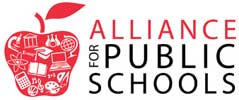A new law passed by the state legislature makes all Florida students eligible for the school voucher program originally designed for low-income children. The “vouchers for all” law took effect July 1st and stands to drastically impact Florida’s public education system. Florida families who apply, regardless of household income, may receive up to $7,800 per year in state money per student with little to no oversight or restrictions. (As an example, 78% of the voucher schools in Orange County are unaccredited.) The Orlando Sentinel reported that the request for vouchers jumped 44% over last year- after just one month into the new program.
By Aug. 11, more than 382,000 students had received vouchers for the 2023-24 school year, giving them access to money for private school tuition, homeschooling services or therapies for children with disabilities, according to Step Up For Students, the private group that administers most of Florida’s scholarship programs.
The scholarships are worth an average of about $7,800 a year, though actual amounts vary by student’s grade level and by county. The voucher programs are still required to prioritize giving awards to children whose families earn no more than 185% of the federal poverty limit, or a family of four earning $55,000 a year or less. But everyone, whether middle class or very rich, is now eligible to apply.
Step Up for Students is the charity that administers the voucher program. They take a 2.5% fee for every voucher they process and are currently one of the 20th wealthiest charities in the nation according to Forbes.
There are many proponents of the program including the Archdiocese of Miami which has seen a significant increase in enrollment in their Catholic schools from families using vouchers.
But the new law also faces fierce critics. They worry its price tag — one estimate says it will cost the state $4 billion in its first years — will devastate public school budgets and dislike that private schools that take vouchers face little regulation from the state.
“This is the design, to undermine our public schools,” said Karen Castor Dentel, an Orange County School Board member during a board budget discussion earlier this month.
“The public dollars that they have given to private schools, those are our public school dollars that they are now giving to people to go to a private school,” Castor Dentel said. “Those are public school dollars they are now handling over to unaccountable private schools where you don’t have to have a qualified teacher.”
Private schools that take state vouchers are mostly religious schools, and they make their own decisions as far as teacher qualifications, curriculum and facilities. Some have hired teachers without college degrees and employees with criminal convictions, set up in rundown buildings and offered curriculum outside mainstream academics, the Orlando Sentinel has reported.
Providing scholarships to families whose children already were in private school or were being homeschooled “is absolutely taking away from public school dollars,” said Norin Dollard, a senior policy analyst with the Florida Policy Institute, a progressive think tank that warned back in February that the new law would cost the state billions of dollars.
Many of the private schools accepting vouchers opened their doors just after the original voucher program was established. From the Sentinel’s article from March, “Well-established or brand-new, none of these schools need to meet public school standards for teacher credentials, academics or facilities, as state scholarship laws allow private schools to set their own rules.
A private school in west Orange County, for example, hired a daycare worker — a woman without a college degree who’d been fired from her last job — as a fourth-grade teacher in 2020.
To accept state scholarships, private schools must meet only a few state rules related to building safety and employee background checks. Even schools that violate those rules are often allowed to remain in the programs.”
Proper regulations and standards should be in place to ensure that all schools receiving tax money, whether public or private, provide a high standard of education and transparency for the use of those funds.
Take action today using our simple online tools. Make sure your lawmakers know your priorities for students and public schools.







